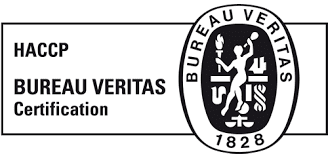The pet food industry is largely unregulated, meaning companies can create and package formulas from whichever ingredients they choose, including soy, processed grains, lentils, artificial colours and preservatives, potatoes, and more. Pets are unable to digest most of these ingredients, leading to digestive complications, weight gain, illness, and other health conditions. Raw pet food provides the key nutrients your pet needs to thrive.
Kibble is entirely processed and comprised of a long list of ingredients, most of which can’t be digested by your pet. In contrast, our raw pet food consists of 100% Canadian meat without any additives, preservatives, or fillers.
If your pet is lethargic, over/underweight, or unhealthy, a raw pet food diet includes all the nutrients and minerals they need to improve their health. Benefits include:
If you look at the label on your kibble pet food, how many ingredients do you see? Even better, how many of those ingredients can you actually pronounce? Filled with carbohydrates, preservatives, and starches, kibble can create a variety of health conditions, including:
Regardless of your dog’s breed, they are directly descended from the Canine lupus, otherwise known as the gray wolf. And although they have adapted to display different behaviour, appearances, and variations, they have the same digestive system. In the wild, wolves eat primarily raw meat, including deer, rabbits, moose, bison, fish, and other prey species.
While some wolves will eat berries and vegetation, this normally only occurs when other meat sources are limited. As such, a wolf’s system is not designed to digest processed food, filler ingredients, and artificial additives.
All of our raw pet food is human grade. In the manufacturing process, bacteria is safely removed from the meat. This ensures your pet always receives safe and clean meat without the risk of contamination. No heating or cooking is required when preparing your pet’s meal.
Protect your pet’s health with our premium raw pet food provided exclusively by Grand Dog Essentials! Explore our collection today and discover how easy it is to provide your furry friend with the nutrition they deserve.
Sunday – CLOSED
Monday – CLOSED
Tuesday – 10:00-4:00
Wednesday – 10:00-4:00
Thursday – 10:00-6:00
Friday – 10:00-6:00
Saturday – 11:00-2:00


Four Roots Pet Products
#3, 4812 – 78 Street Red Deer, Alberta
403-396-5857